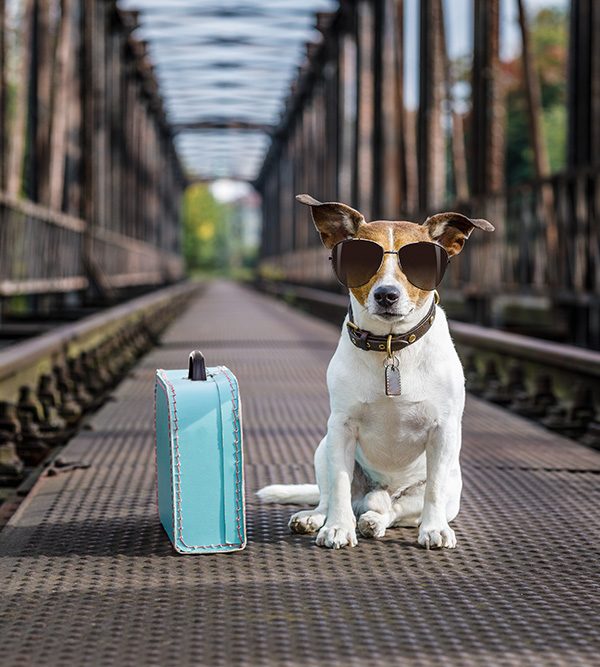Discover important factors to consider when adopting a dog and choosing the right breed to ensure a compatible match for your lifestyle.
Choosing the Right Breed
Adopting a dog is an exciting and rewarding experience, but it’s important to choose the right breed that suits your lifestyle and preferences. Dogs come in all shapes, sizes, and temperaments, so taking the time to consider various factors before making a decision is crucial. In this article, we will explore the key factors to consider when choosing the right breed for you.
Factors to Consider Before Adopting a Dog
Here are some of the most important factors to consider when choosing a dog breed:
- Size: The size of the dog is an important factor to consider. If you live in a small apartment or have limited space, a smaller breed may be more suitable. Larger breeds, on the other hand, require more space and exercise. Consider your living arrangements and ensure you can provide adequate space for your chosen breed.
- Activity level: How active are you? If you’re an active person who loves to go for long walks or hikes, you’ll need a dog that can keep up. If you’re more of a couch potato, you’ll want to choose a breed that’s content to relax at home.
- Temperament: Each breed has its own unique temperament traits. Some breeds are known for being friendly and sociable, while others may be more reserved or protective. Consider your own personality and lifestyle. Do you prefer an outgoing and affectionate dog or one that is more independent? Research different breeds and their temperaments to find a match that aligns with your preferences.
- Grooming needs: Different breeds have different grooming requirements. Some breeds have long, flowing coats that require regular brushing and grooming, while others have short coats that are low-maintenance. Consider how much time and effort you are willing to dedicate to grooming. If you prefer a breed with minimal grooming needs, choose a breed with a short coat or consider a breed that doesn’t shed as much.
- Health issues: Some breeds are more prone to certain health problems than others. Do some research to learn about the health risks associated with different breeds so that you can be prepared.
- Energy Level: Dogs have different energy levels, ranging from high-energy working breeds to low-energy lap dogs. Consider your own activity level and lifestyle. If you enjoy outdoor activities and have the time and energy for daily exercise, an active breed may be a good fit. However, if you prefer a more relaxed and low-maintenance companion, a lower energy breed may be more suitable.
- Allergies: If you or someone in your household has allergies, it’s important to consider hypoallergenic breeds that produce fewer allergens. These breeds often have hair instead of fur and shed less, reducing the risk of triggering allergies. However, it’s important to note that no dog breed is completely hypoallergenic, so it’s essential to spend time with the breed you’re considering to ensure it doesn’t cause an allergic reaction.
- Trainability: Some breeds are more trainable and eager to please, while others may be more independent or stubborn. If you’re a first-time dog owner or prefer a dog that is easier to train, choose a breed known for its trainability and intelligence. These breeds are often more responsive to training and can quickly learn commands and tricks.
- Health Considerations: Different breeds are prone to specific health issues. Research the common health problems associated with the breed you’re considering and ensure you are prepared to provide the necessary care and attention. Regular veterinary check-ups, proper nutrition, and exercise are essential for maintaining your dog’s overall health and well-being.
- Lifespan: Dogs have varying lifespans, with smaller breeds generally living longer than larger breeds. Consider the lifespan of the breed you’re interested in and be prepared for the commitment of caring for your dog throughout their life.
- Breed-Specific Legislation: It’s important to be aware of any breed-specific legislation in your area. Some breeds may be restricted or require special permits or insurance due to safety concerns or breed-specific laws. Ensure you are familiar with any regulations that may apply to the breed you’re considering.
- Rescue or Breeder: Lastly, consider whether you want to adopt from a rescue organization or purchase from a reputable breeder. Rescue dogs can make wonderful companions and often come with the added benefit of being already trained and socialized. However, if you have specific preferences or requirements, a reputable breeder can help match you with the right breed and provide valuable information about the dog’s lineage and health history.
Once you’ve considered all of these factors, you can start researching different breeds of dogs to find the one that’s right for you. There are many resources available to help you, such as books, websites, and even dog breed experts.
Adopting a dog is a wonderful decision, but it’s important to make sure you choose the right breed for you and your family. By taking the time to consider all of the factors involved, you can ensure that your new furry friend will be a happy and well-adjusted member of your household for many years to come.
All kinds of pets need supplements for helthier & active life. Try this article with complete Nutrition guide: The Role Of Supplements In Pet Nutrition: What You Need To Know
Additional tips
Here are some additional tips for choosing the right breed of dog:
- Talk to your veterinarian. They can help you narrow down your choices based on your lifestyle and health needs.
- Visit a local animal shelter or rescue organization. This is a great way to meet different breeds of dogs and see which one you connect with.
- Spend time with the dog. Take the dog for a walk, play with it, and let it interact with your family members. This will give you a good idea of its personality and temperament.
- Don’t be afraid to ask questions. The shelter or rescue organization staff can answer any questions you have about the dog’s history, personality, and needs.
Choosing the right dog breed is an important decision, but it’s also a lot of fun. With careful research and planning, you can find the perfect furry friend to share your life with.









